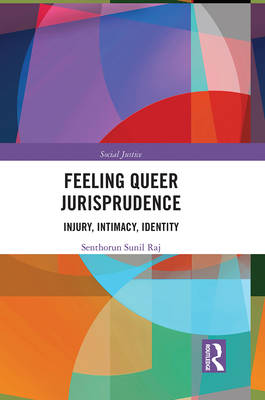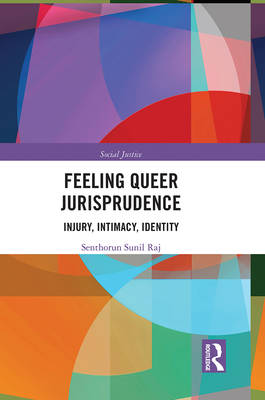
- Retrait gratuit dans votre magasin Club
- 7.000.000 titres dans notre catalogue
- Payer en toute sécurité
- Toujours un magasin près de chez vous
- Retrait gratuit dans votre magasin Club
- 7.000.0000 titres dans notre catalogue
- Payer en toute sécurité
- Toujours un magasin près de chez vous
Description
This book draws on the analytic and political dimensions of queer, alongside the analytic and political usefulness of emotion, to navigate legal interventions aimed at progressing the rights of LGBT people.
Scholars, activists, lawyers, and judges concerned with eliminating violence and discrimination against LGBT people have generated passionate conversations about pursuing law reform to make LGBT injuries, intimacies, and identities visible, while some challenge the ways legal systems marginalise queer minorities. Senthorun Sunil Raj powerfully contributes to these ongoing conversations by using emotion as an analytic frame to reflect on the ways case law seeks to "progress" the intimacies and identities of LGBT people from positions of injury. This book catalogues a range of cases from Australia, the United States, and the United Kingdom to unpack how emotion shapes the decriminalisation of homosexuality, hate crime interventions, anti-discrimination measures, refugee protection, and marriage equality. While emotional enactments in pro-LGBT jurisprudence enable new forms of recognition and visibility, they can also work, paradoxically, to cover over queer intimacies and identities. Raj innovatively shows that reading jurisprudence through emotions can make space in law to affirm, rather than disavow, intimacies and identities that queer conventional ideas about "LGBT progress", without having to abandon legal pursuits to protect LGBT people. This book will be of interest to students and scholars of human rights law, gender and sexuality studies, and socio-legal theory.Spécifications
Parties prenantes
- Auteur(s) :
- Editeur:
Contenu
- Nombre de pages :
- 168
- Langue:
- Anglais
- Collection :
Caractéristiques
- EAN:
- 9781032137513
- Date de parution :
- 30-09-21
- Format:
- Livre broché
- Format numérique:
- Trade paperback (VS)
- Dimensions :
- 156 mm x 234 mm
- Poids :
- 244 g

Les avis
Nous publions uniquement les avis qui respectent les conditions requises. Consultez nos conditions pour les avis.






